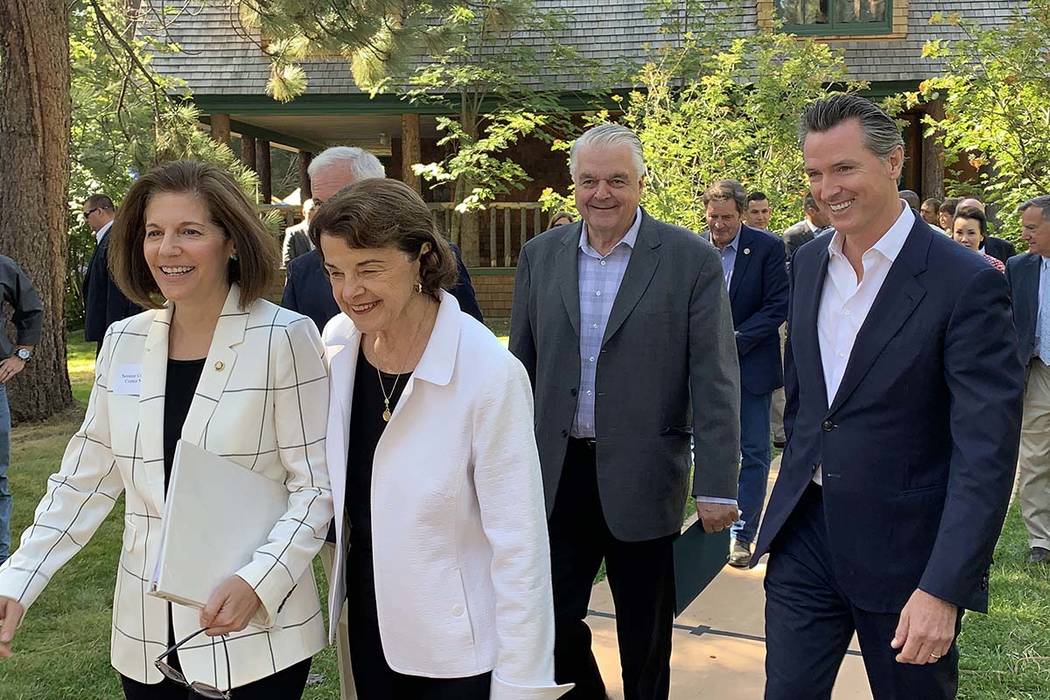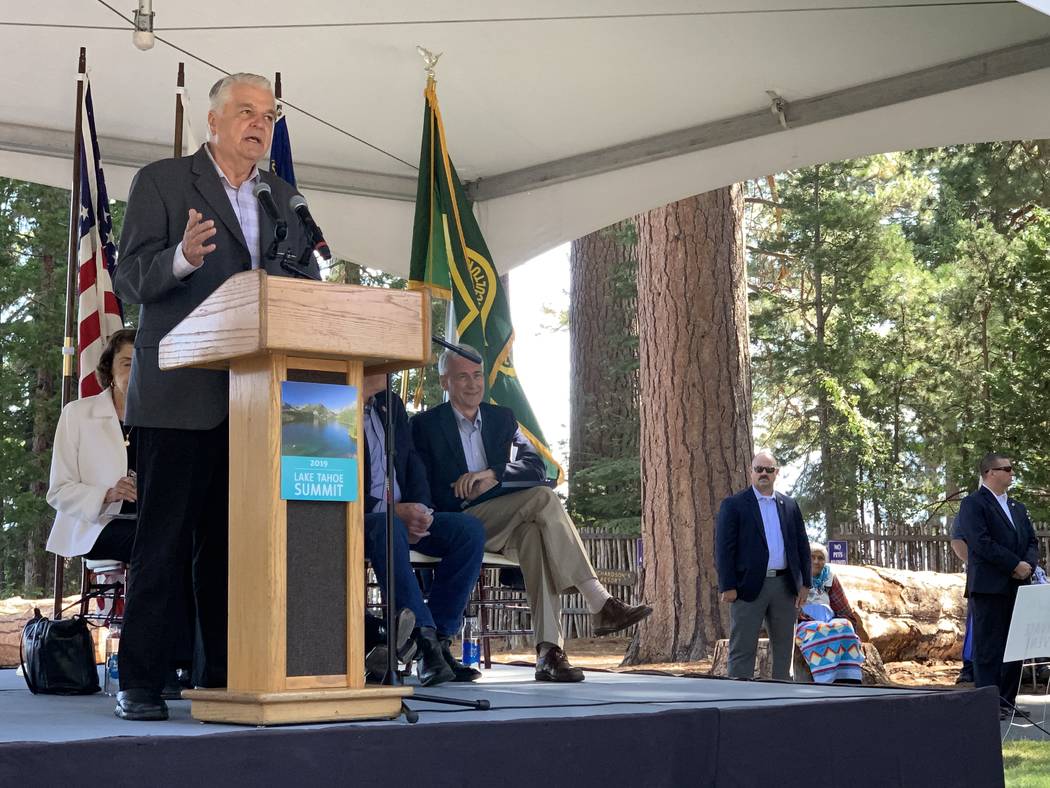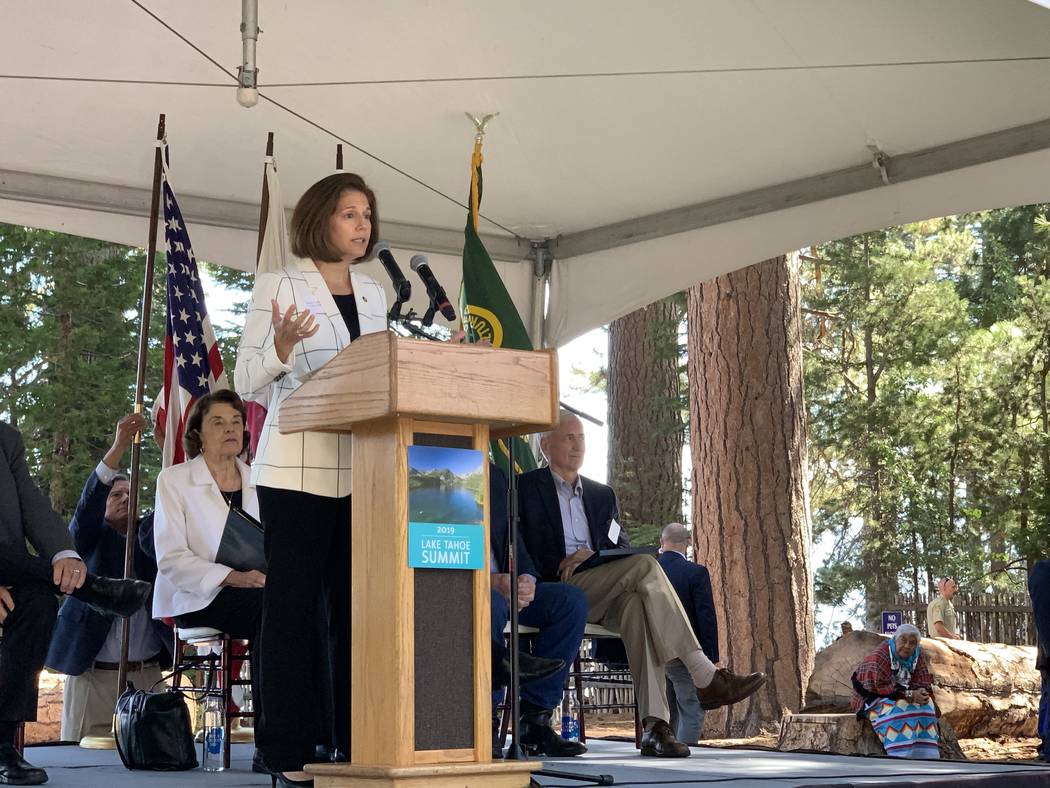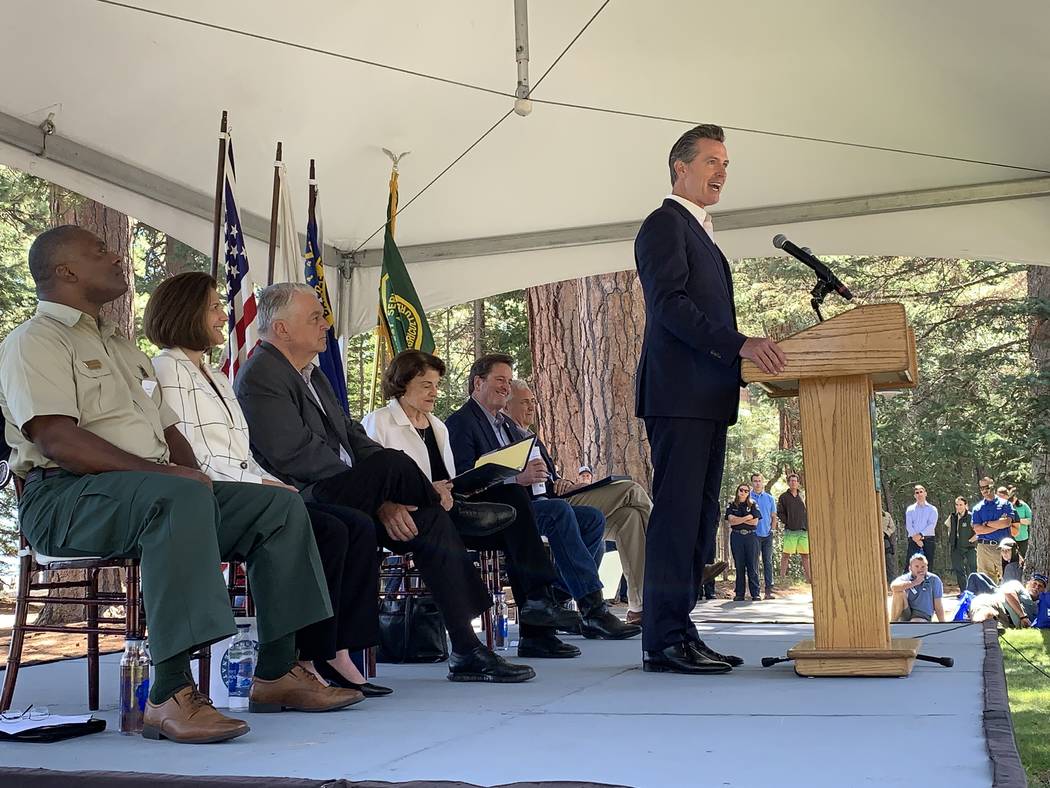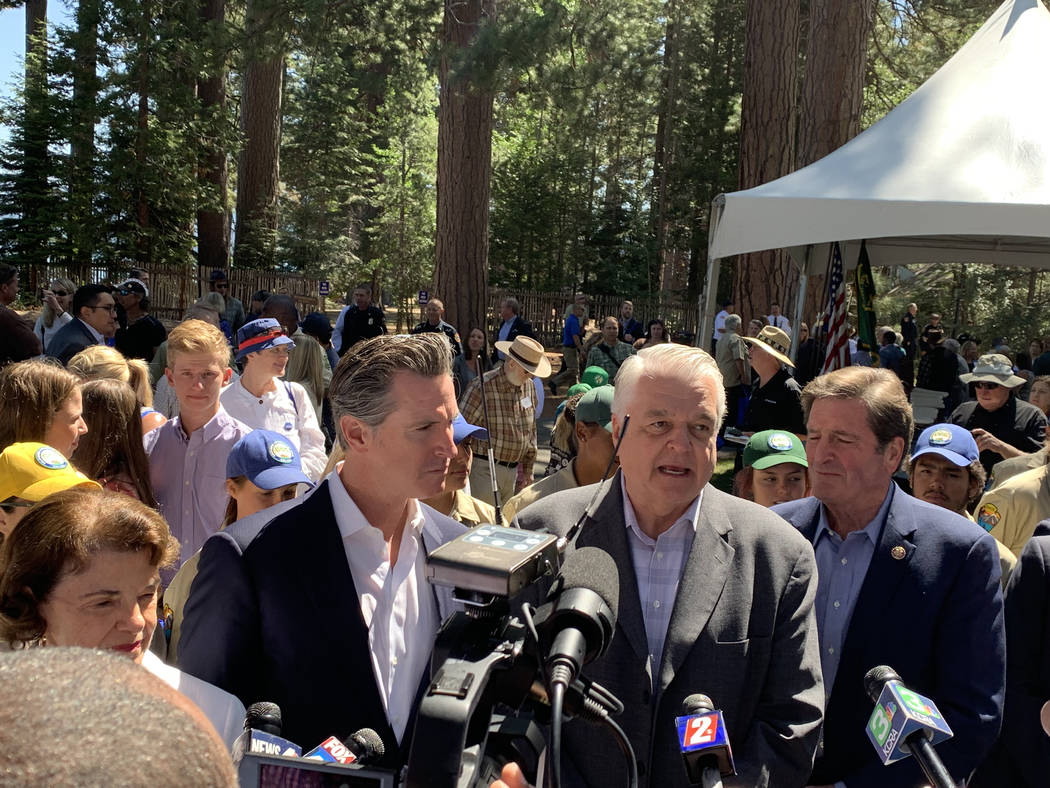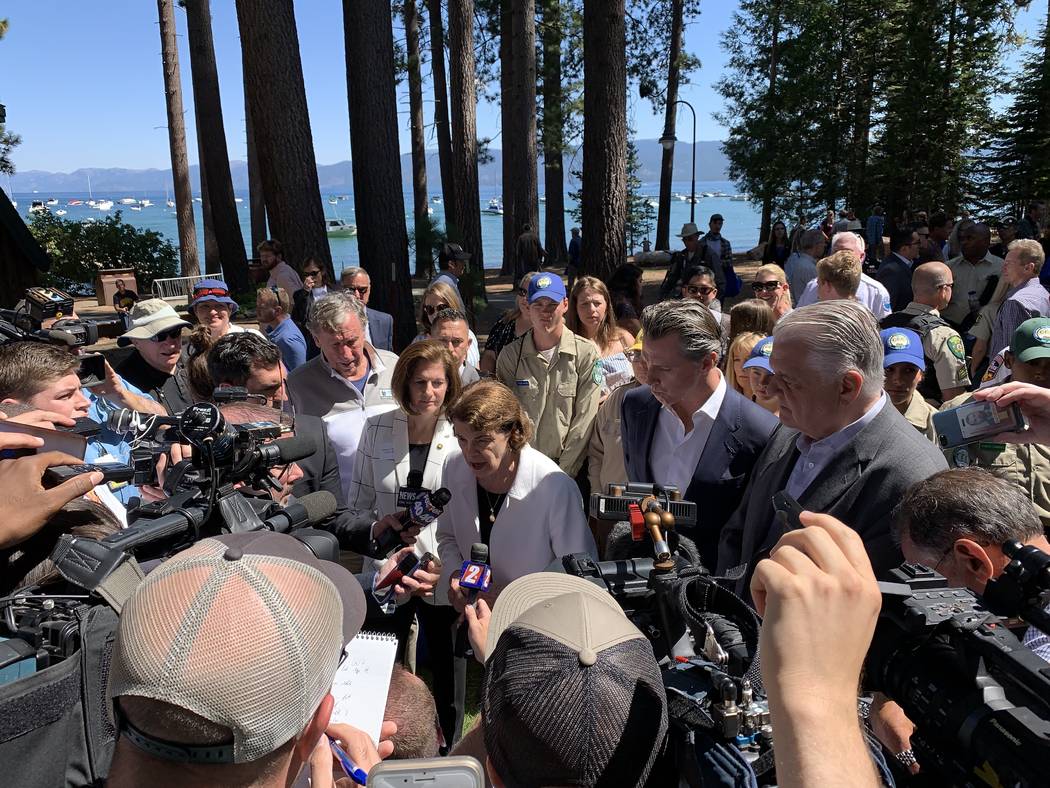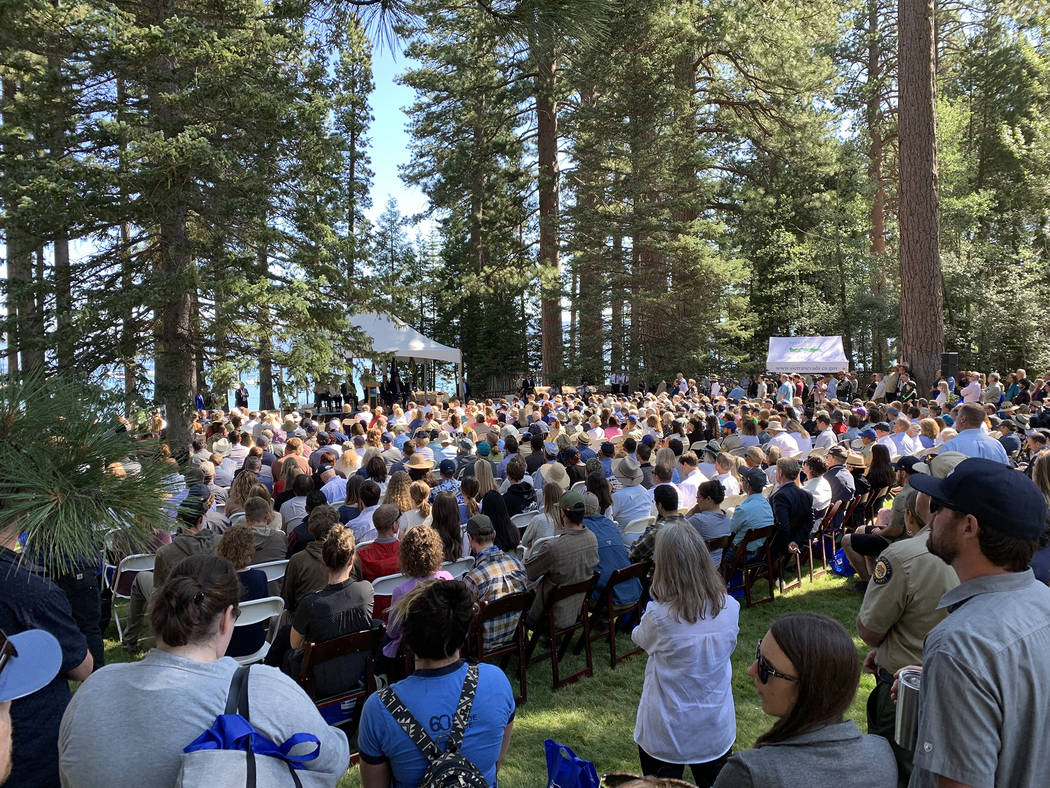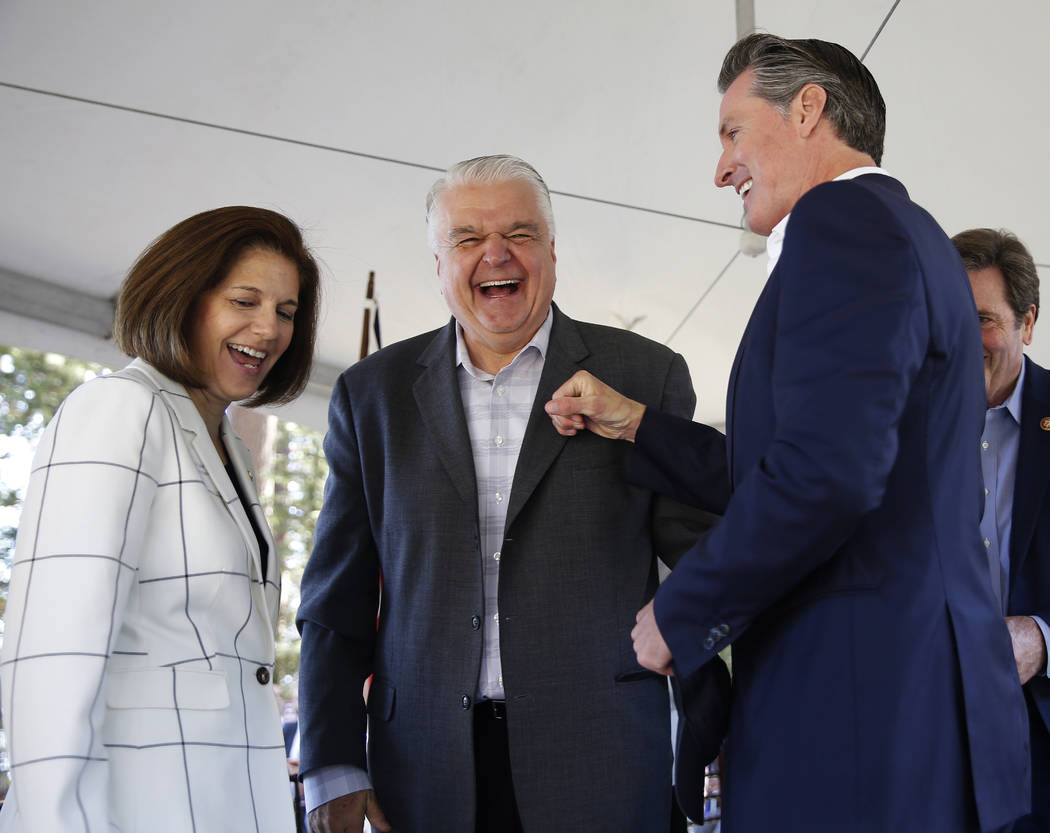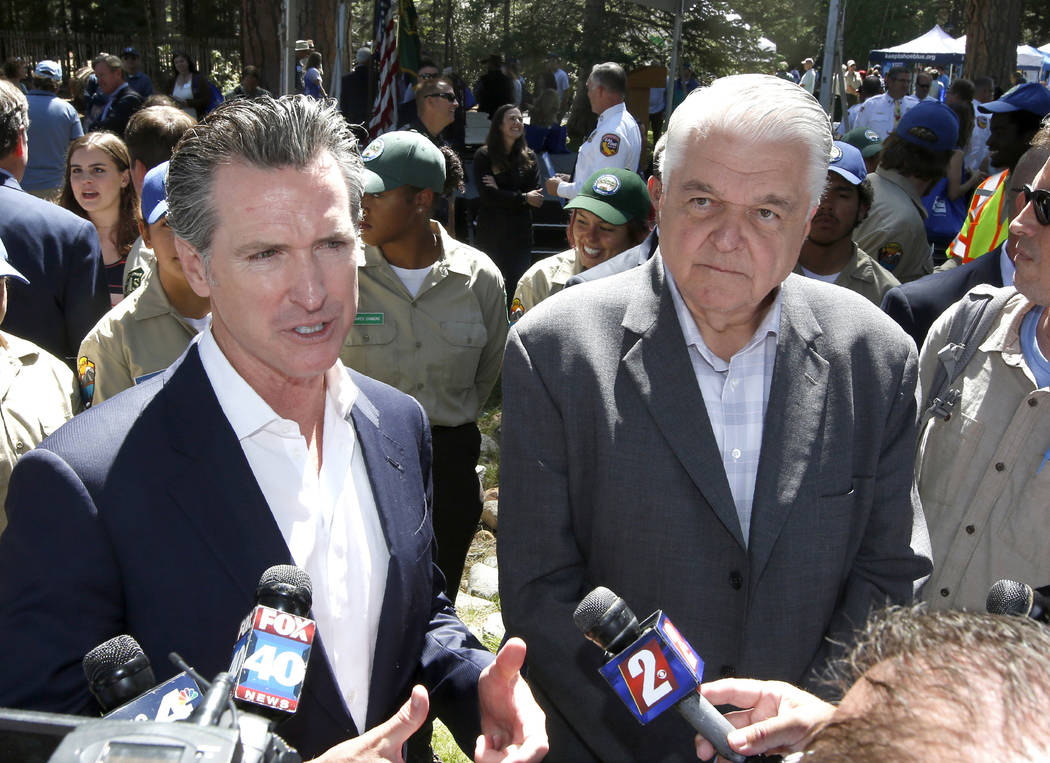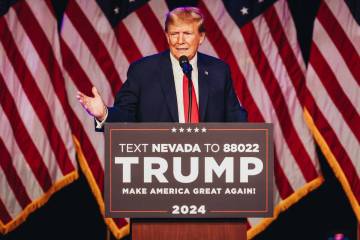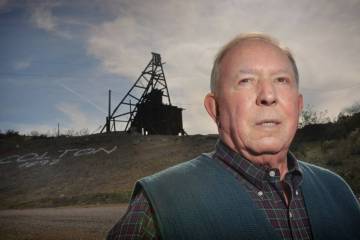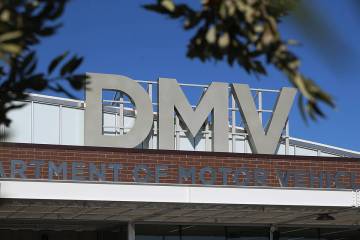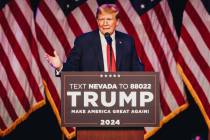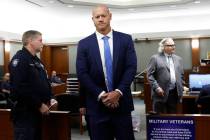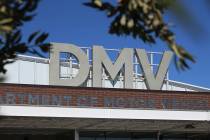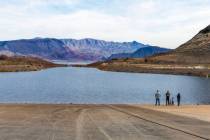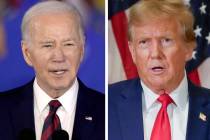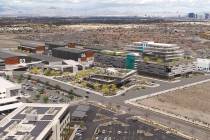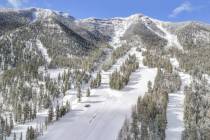Nevada, California officials praise efforts to preserve Lake Tahoe
SOUTH LAKE TAHOE, Calif. — Climate change took center stage at this year’s 23rd annual Lake Tahoe Summit as politicians from California and Nevada highlighted the work that has been done to protect the prized lake from its biggest threats.
“Over the past 50 years, the hot summer season has increased by 20 days. Now what’s the result?” California Sen. Dianne Feinstein said. “Invasive species are thriving. Trees are dying in increasing numbers. Snow pack in the mountains is decreasing. And the lake’s clarity in the summer is declining.”
“So climate change is not an issue we can ignore. And if we do so, we do it at our own peril,” Feinstein added.
Feinstein highlighted to the audience of conservationists, firefighters and officials from both states the many efforts that have gone into preserving and restoring the natural beauty of the lake and its surrounding areas over the past two-plus decades.
But she and other speakers at Tuesday’s summit at the Tallac Historic Site at Valhalla, including Nevada Gov. Steve Sisolak, Sen. Catherine Cortez Masto, D-Nev., California Gov. Gavin Newsom, Reps. John Garamendi, D-Calif., and Tom McClintock, R-Calif., and Deputy Regional Forester Barnie Gyant, warned that Lake Tahoe and its famously clear waters aren’t out of the woods just yet.
Newsom said there is “no greater cause than” than maintaining Tahoe’s clarity, as those efforts act as a proxy in the larger fight against carbon emissions, rising temperatures and other aspects of climate change.
California set a goal to reduce its greenhouse gases to 1990 levels by 2020. Last week, the state’s Clean Air Resources Board announced that the emissions across the state dropped 1 percent in 2017 to 424 million metric tons — below the 431 million metric tons mark from 1990. Clean energy improvements led the charge, with electricity generating emissions falling by 9 percent.
The Nevada Legislature passed a bill this year that was signed by Sisolak to raise the state’s renewable portfolio standard to 50 percent by 2030.
Former Sen. Harry Reid of Nevada created the summit in 1997, which set the stage for the passage of the Lake Tahoe Restoration Act that Reid and Feinstein drafted together. The bill brought together federal funds from Nevada and California and money from the private sector to help preserve and restore the lake.
Since the first summit, more than $2 billion has been invested in the Lake Tahoe environmental improvement program, which has funded nearly 700 restoration projects that include new bike paths, roads and the lake’s lauded boat inspection program that has helped keep new invasive species from entering its waters.
Cortez Masto, who noted that she is signed as a sponsor to legislation that would create tax incentives for renewable technologies, said she went back to see what was said in those speeches from the inaugural summit, and noted that climate change was mentioned just twice in a speech given by then-President Bill Clinton.
“It was a footnote,” said Cortez Masto, whose speech Tuesday included 11 mentions of the phrase. “Today, we do not have the luxury of sidestepping climate change, especially when this administration has abandoned the important global leadership on the issue.”
Contact Capital Bureau Chief Colton Lochhead at clochhead@reviewjournal.com or 775-461-3820. Follow @ColtonLochhead on Twitter.



